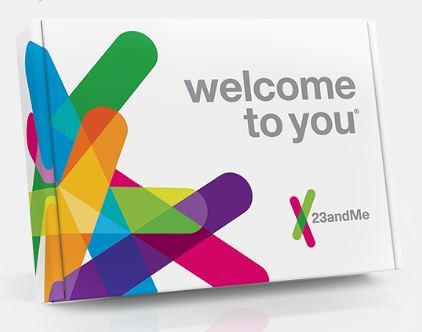The US Food and Drug Administration recently granted approval for the first time ever to a genetic-testing startup to directly sell its tests that can predict a person’s risk for various diseases, including Parkinson’s and Alzheimer’s.
The FDA’s landmark decision, made Thursday, is expected to pave the way for other genetic sequencing companies and startups worldwide to commercialize their own direct-to-consumer genetic tests for disease risks in the US.
The US health regulator has permitted genetic testing startup 23andMe to market $199 genetic tests that uses saliva to provide information on an individual’s genetic predisposition to 10 types of medical diseases or conditions.
 |
(23andMe) |
The 23andMe test works by isolating DNA from a saliva sample, which is then tested for more than 500,000 genetic variants. The presence or absence of some of these genetic variants is associated with an increased risk for certain diseases.
Previously, people could access such genetic tests only by visiting a hospital or medical professional who would order a test and deliver the results. Moreover, patients were often required to see a genetic counselor before they could even receive a test.
“Consumers can now have direct access to certain genetic risk information,” Jeffrey Shuren, director of the FDA’s Center for Devices and Radiological Health, said in a statement.
“But it is important that people understand that genetic risk is just one piece of the bigger puzzle, it does not mean they will or won’t ultimately develop a disease,” Shuren said.
That the US appears to be opening its doors to personalized genetic testing for disease prediction -- despite lingering concerns it could initiate unnecessary medical visits and worries -- is a green light for startups in this field and raises expectations that South Korea could follow in this direction.
As of last year, the Korean Ministry of Health does allow private companies to provide genetic testing services directly to the public, but only for analyzing 12 health markers, including blood pressure, blood sugar levels, skin aging and body mass index. It disallows direct-to-consumer genetic testing services for disease prediction.
The 12 approved markers are considered “safe” in the sense that they are basic knowledge that can aid a person in finding out more about their basic health status, be it their risk to obesity, baldness or skin pigmentation.
However, this also means they are less useful and meaningful for consumers seeking answers to their illnesses or conditions via easy-to-access genetic testing, according to Keum Chang-won, CEO of 3billion, a local startup aiming to launch a direct genetic testing service for rare disease patients in the US by the end of the year.
“The Korean government has granted permission to the safest, and least meaningful types of genetic testing, largely because it wants to avoid responsibility for potential problems from new types of services,” said Keum in a recent interview with The Korea Herald.
Spun off from Korea’s biggest genetic sequencing firm Macrogen last year, 3billion is looking to provide genetic testing services for patients suffering from rare undiagnosed diseases, many of whom have been unable to find a workable treatment plan. It is targeting the US and other overseas markets. Korea is currently off the list, due to regulatory hurdles.
The Seoul-based startup collects an individual’s saliva sample to analyze his or her entire exome — the portion of the genome that expresses genes — to screen for more than 4,000 rare diseases at once. The whole exome sequencing service is anchored at under $1,000.
The startup plans to first launch its service in the US following negotiations with the US FDA, with plans to expand into additional markets around the world in the future. Whether Korea will be included in the list depends on the government’s future regulatory stance, Keum said.
“If Korea does not approach future medicine with a more open mindset, it will fall behind rivals in the newly-forming biotech and medical service sectors geared for immense growth in the future,” said Seo Jeong-sun, president of the Korea Biotechnology Industry Organization and the chairman of Macrogen.
“The Korean biotech industry has high hopes that the newly elected government will move to better address this issue in the future,” Seo said.
By Sohn Ji-young (jys@heraldcorp.com)







